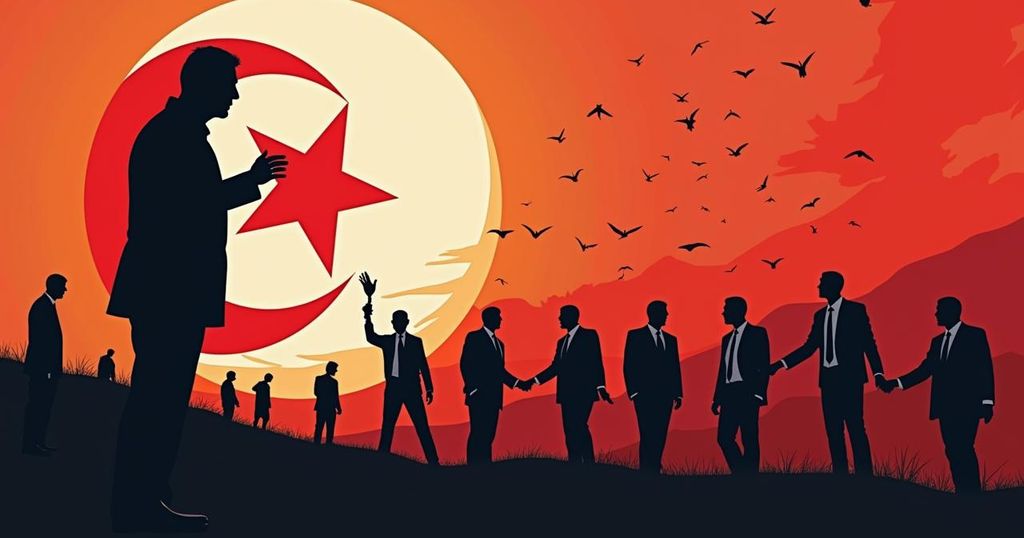Overview of Tunisia’s Upcoming Presidential Election and Its Implications
Tunisia’s presidential election on Sunday is crucial as it marks the first since President Kais Saied extended his power. His governance has seen a decline in civil liberties and freedom of speech, prompting concerns over electoral integrity. The political landscape is fraught with public disillusionment, decreased media freedom, and compromised judicial independence, raising significant doubt about the election’s potential to remedy ongoing national issues.
The upcoming presidential election in Tunisia, set for Sunday, is significant as it is the first since President Kais Saied assumed office in 2019 without prior political experience. Following his election, he extended his hold on power through a self-coup in July 2021, which included the suspension of parliament and the dismissal of the prime minister. Under his administration, civil liberties and freedom of speech have severely deteriorated, with numerous arbitrary arrests targeting critics and opponents of the president. Public disillusionment with party politics casts doubt on the election’s fairness, with many observers suggesting it is rigged in advance and expecting Saied to be returned for a second term. Since the Jasmine Revolution in 2011, which ousted dictator Zine El Abidine Ben Ali, Tunisia was once seen as the sole success of the Arab Spring, prominently featuring active citizen engagement and the establishment of democratic principles. However, political reality has been tumultuous, characterized by unstable governments, rising unemployment, economic decline, and inadequate reform of security services despite landmark legislation aimed at enhancing rights during this period. The election landscape is limited, with President Saied’s candidacy alongside that of two others, one currently incarcerated and the other a noted supporter of Saied. Rejections of opposition candidates have raised doubts about the credibility of the Independent High Authority for Elections (ISIE), which has undergone restructuring under Saied’s authority. The judiciary’s independence has been compromised, especially following Saied’s dissolution of the elected High Judicial Council and dismissal of judges, raising concerns about political interference. The media climate is similarly repressive, with critics facing jail time under a controversial law that criminalizes false public speech, effectively stifling opposition voices. While there has been a muted response from civil society following Saied’s consolidation of power, small protests have emerged against the president’s repression of free speech and allegations of electoral manipulation. Yet, these demonstrations pale in comparison to those of the earlier revolutionary period. The electoral exercise on Sunday is widely seen as unlikely to address Tunisia’s deep-rooted issues, given the overarching manipulation of political processes by the current regime.
Tunisia’s political climate has deteriorated significantly since President Kais Saied’s rise to power in 2019. Initially celebrated for its democratic advancements following the Arab Spring, Tunisia now faces severe restrictions on civil liberties, media censorship, and diminished judicial independence. Saied’s actions, including his self-coup in 2021 and the restructuring of electoral and judicial bodies, have led to widespread allegations of electoral manipulation and an environment hostile to dissent.
In conclusion, the upcoming presidential election in Tunisia underscores the precarious state of democracy and civil liberties in the country. With President Saied poised to secure another term amidst allegations of electoral misconduct and a severely restricted political landscape, the prospects for meaningful reform or improvement of Tunisia’s pressing challenges appear dim.
Original Source: www.aljazeera.com




Post Comment